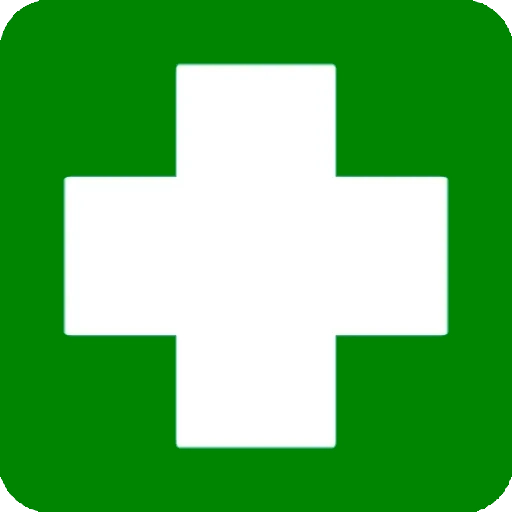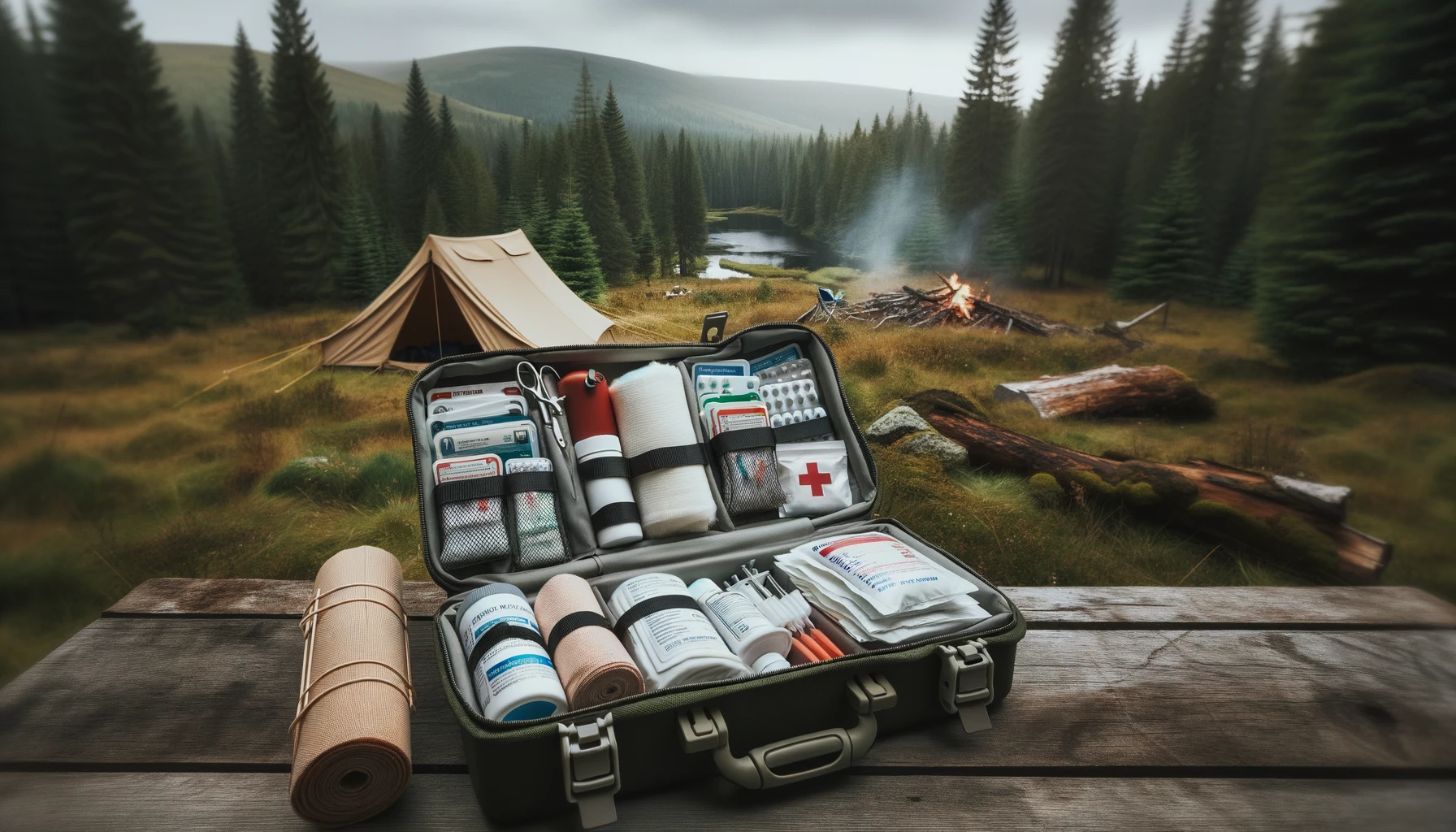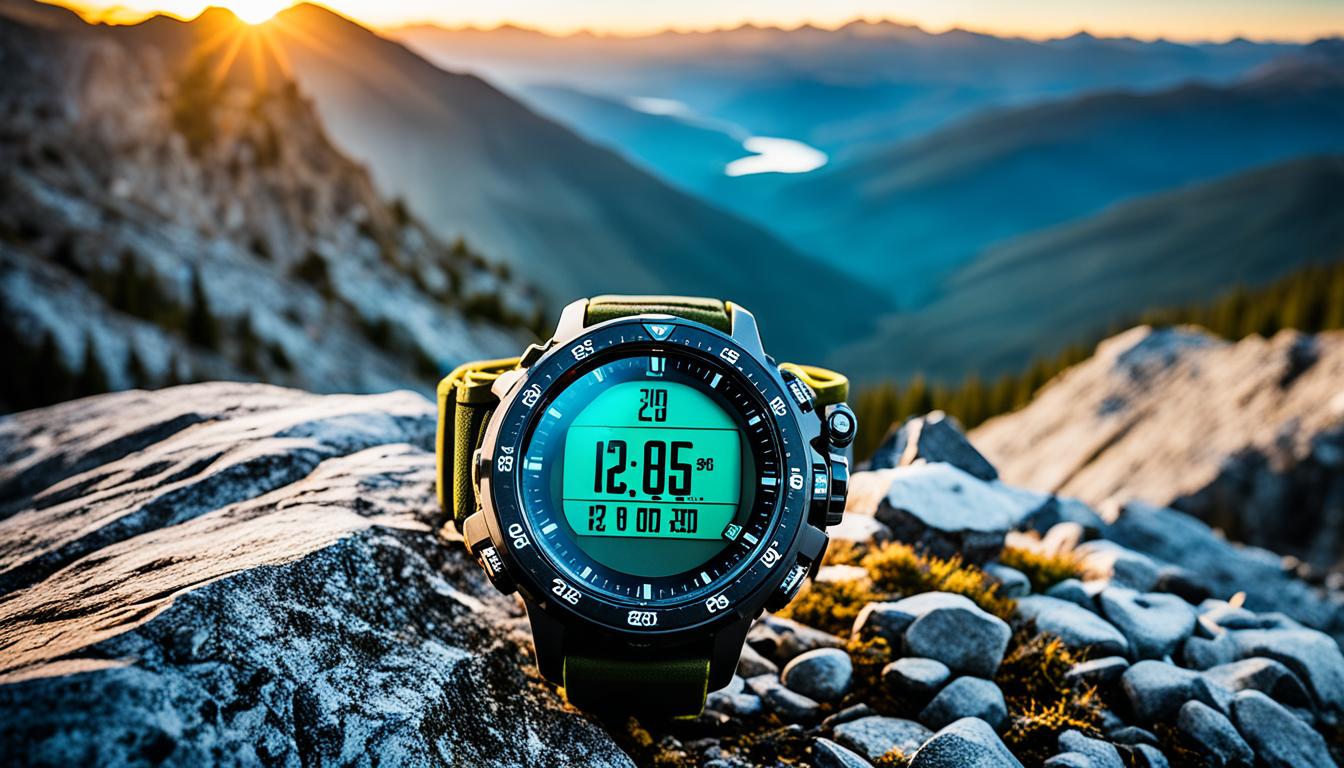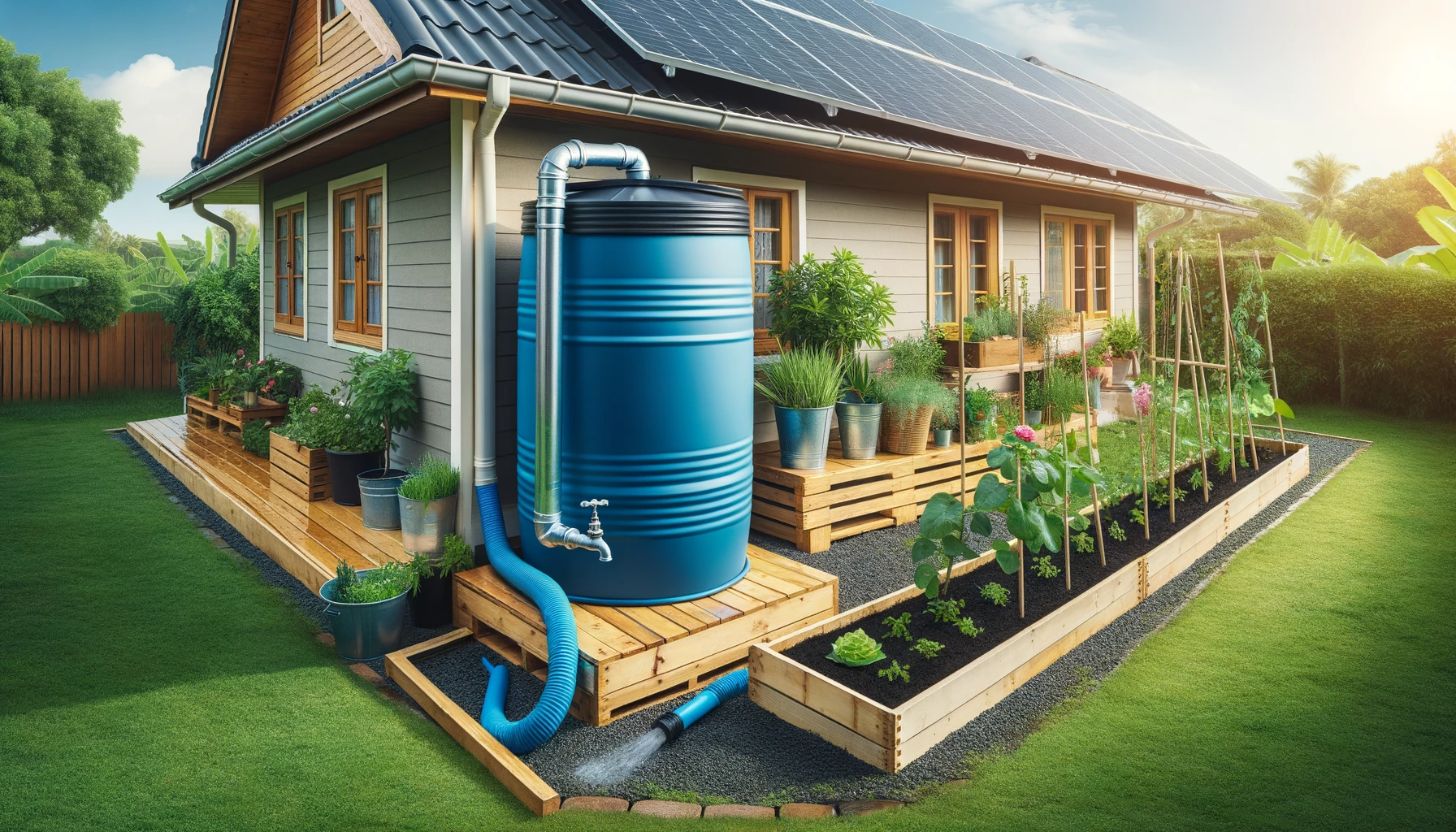When it comes to survival situations, medical emergencies can happen unexpectedly and often require immediate attention. A proper survival medicine guide is necessary to help you handle such emergencies effectively. In this section, we will provide you with a comprehensive guide to emergency medical procedures and protocols to enhance your preparedness in unexpected situations.
Knowing how to handle medical emergencies in survival situations can be a matter of life and death. Therefore, being equipped with the right information and skills should be a top priority for anyone planning to spend time in the wilderness.
This survival medicine guide will cover essential skills such as identifying and treating common injuries, administering emergency medical care in the wild, and understanding wilderness first aid techniques. Furthermore, we will discuss natural remedies for survival, essential medical supplies for survival situations, and self-care and maintenance in survival situations.
Key Takeaways
- Becoming familiar with emergency medical procedures and protocols is crucial to enhance your preparedness in unexpected survival situations.
- Understanding wilderness first aid is crucial for treating injuries in the wild.
- Natural remedies can be a valuable asset for self-sufficiency in medical emergencies.
- Having essential medical supplies on hand is crucial for administering proper medical care in survival situations.
- Identifying and treating common injuries and illnesses in the wild can potentially be life-saving.
Understanding Wilderness First Aid
When you’re out in the wilderness, you’re often far away from professional medical help. In a survival scenario, a minor injury can quickly become life-threatening without proper care. That’s why understanding wilderness first aid is crucial to treating injuries in survival situations.
Wilderness first aid involves quickly assessing a person’s condition, providing emergency care, and stabilizing them until they can receive professional medical attention. The primary goals of wilderness first aid are to:
- Preserve life
- Prevent further harm
- Provide basic medical care
Common injuries you may encounter in the wilderness include:
- Cuts and puncture wounds
- Burns and blisters
- Sprains and fractures
- Hypothermia and heat exhaustion
To treat these injuries, you will need to carry a wilderness first aid kit. Your kit should contain:
- First aid manual
- Tweezers and scissors
- Gauze and adhesive tape
- Antiseptic wipes and antibiotic ointment
- Aspirin and acetaminophen
- Emergency blanket
- Whistle and signaling mirror
When providing care, it’s essential to prioritize your safety as well. Remember the following safety tips:
- Assess the scene before approaching
- Wear gloves to avoid infection
- Expose only the injured body part
- Do not move someone with a suspected bone fracture
- Keep the person warm and dry
- Evacuate the person if necessary
When in doubt, seek professional medical help as soon as possible. Wilderness first aid is meant to stabilize a person until they can reach a hospital or other medical facility.
Understanding wilderness first aid techniques and how to effectively treat injuries in survival situations can make all the difference in an emergency. Be prepared with the necessary skills and knowledge to provide emergency medical care in the wild.
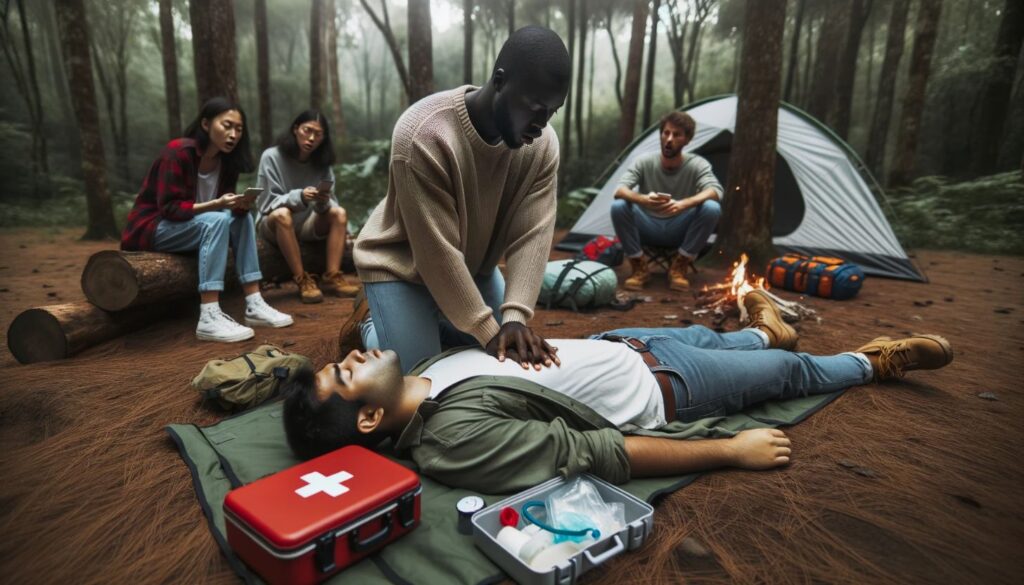
Natural Remedies for Survival
When faced with a medical emergency in a survival situation, it’s essential to be prepared with the right tools and knowledge. While having a first aid kit is crucial, it’s equally important to know how to treat injuries and illnesses using natural remedies found in your surroundings.
Natural remedies for survival are a great way to enhance self-sufficiency and promote faster healing in emergency situations.
DIY Medical Treatments Using Natural Resources
Knowing how to use natural resources to create DIY medical treatments can come in handy when traditional medicine is not available. For example, creating a poultice from herbs and plant roots can be used to relieve inflammation, pain, and swelling. Additionally, using honey to dress a wound can prevent infection and speed up the healing process.
Using natural remedies for survival not only ensures medical aid in emergencies but also fosters an appreciation for nature and its healing properties.
The Power of Essential Oils
Essential oils have been used for centuries to alleviate pain, reduce inflammation, and boost immunity. In survival situations, essential oils can be used to create homemade remedies for a variety of ailments, from headaches to respiratory infections. Some popular essential oils for survival include tea tree oil, lavender oil, and peppermint oil.
Integrating essential oils into your survival medical kit can be an effective way to enhance your emergency preparedness.
The Benefits of Herbal Medicine
Herbal medicine involves using plants and herbs for medicinal purposes. It’s a practice that has been used for thousands of years to treat illnesses and injuries. In survival situations, knowing how to identify and use medicinal plants can be a valuable skill. Some popular medicinal herbs include echinacea, chamomile, and ginseng.
Using herbal medicine for survival not only provides medical aid but also promotes a deeper connection with the natural world.
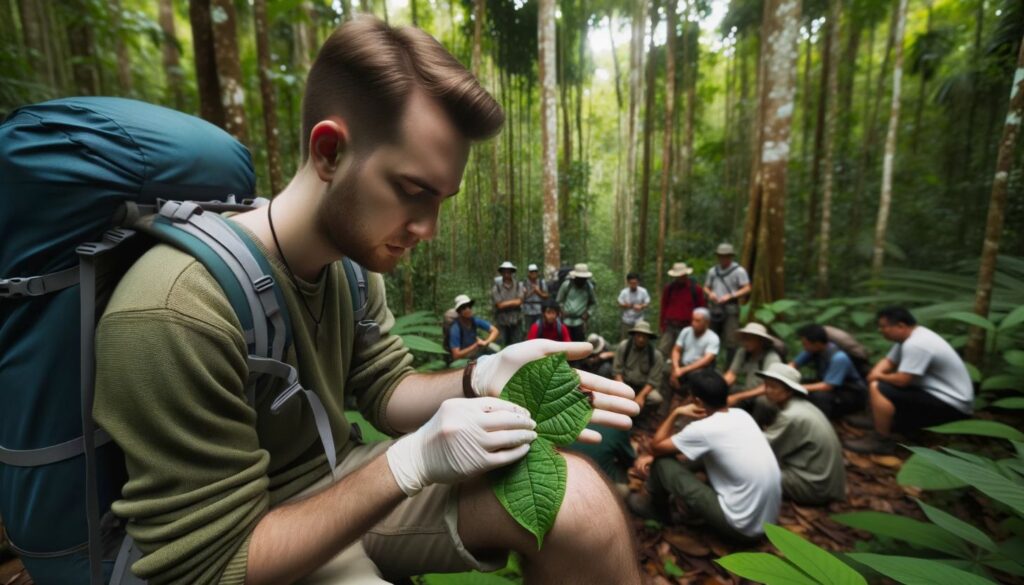
By incorporating natural remedies into your survival medical kit, you can enhance your emergency preparedness and self-sufficiency. Remember to research and test any natural remedies you plan to use, and always seek professional medical attention when necessary.
Essential Medical Supplies for Survival
When it comes to survival situations, having the right medical supplies could be the difference between life and death. It’s crucial to be prepared and know what essential medical supplies you should have in a survival kit.
A well-stocked first aid kit is vital for survival medicine techniques. It should contain items such as bandages, gauze, adhesive tape, scissors, tweezers, and antiseptic solutions. Including a thermometer, a snake bite kit, and a splint is also advisable.
| Item | Use |
|---|---|
| Bandages | To control bleeding and cover wounds |
| Gauze | For cleaning and dressing wounds |
| Adhesive tape | To secure bandages and dressings |
| Scissors | To cut bandages, tape, and clothing |
| Tweezers | To remove splinters, ticks, and other debris |
| Antiseptic solutions | To clean and disinfect wounds |
| Thermometer | To monitor body temperature |
| Snake bite kit | To provide immediate care for venomous snake bites |
| Splint | To immobilize broken bones and sprains |
Other essential medical supplies for survival include water purification tablets, pain relievers, antibiotics, and personal medications. These items can help prevent infection, reduce pain and inflammation, and maintain overall health during an emergency situation.
It’s also important to familiarize yourself with survival medicine techniques such as wound cleaning and closure, fracture immobilization, and infection prevention. Ensure you are comfortable using your medical supplies and understand how to handle unexpected medical emergencies.
Remember, being prepared with the right medical supplies and survival medicine techniques can make all the difference in a life or death situation.
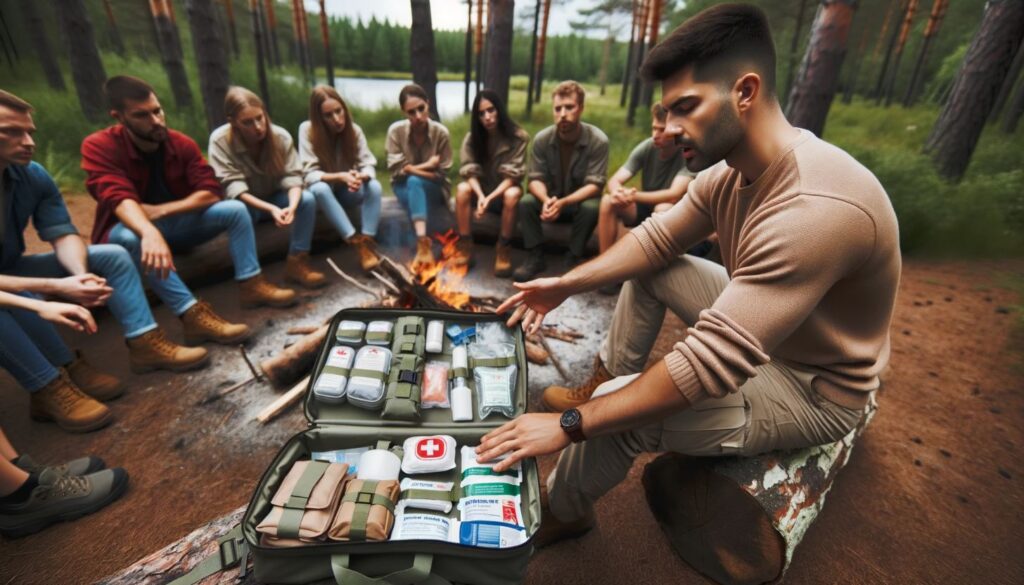
Recognizing and Treating Common Injuries
When you find yourself in a survival situation, injuries can occur at any time. Properly recognizing and treating common injuries can mean the difference between life and death. Understanding how to administer emergency medical care in the wild is crucial to your survival.
Broken Bones
A broken bone in a survival situation can be dangerous but can usually be treated effectively with proper care. If you suspect a broken bone, immobilize the area immediately using a splint to prevent further damage. Seek medical attention as soon as possible to ensure proper healing.
Cuts and Wounds
Cuts and wounds are a common occurrence in survival situations and can become infected easily without proper care. Clean the wound immediately using clean water and apply pressure to stop the bleeding. Apply a sterile bandage to prevent contamination and change it daily to prevent infection. Seek medical attention if the wound is deep or if you suspect infection.
Burns
Burns can occur when you least expect them, especially when dealing with fire. Immediately remove any clothing near the burn site and flush the area with cool running water for at least 10 minutes. Cover the burn with sterile gauze and avoid breaking any blisters that may form. Seek medical attention if the burn is severe.
Sprains and Strains
Sprains and strains are common in survival situations, especially when navigating rough terrain. Reduce swelling by applying ice to the affected area for 20 minutes at a time. Elevate the area and avoid putting weight on it. Use a compression wrap to immobilize the area and seek medical attention if the pain and swelling persist.
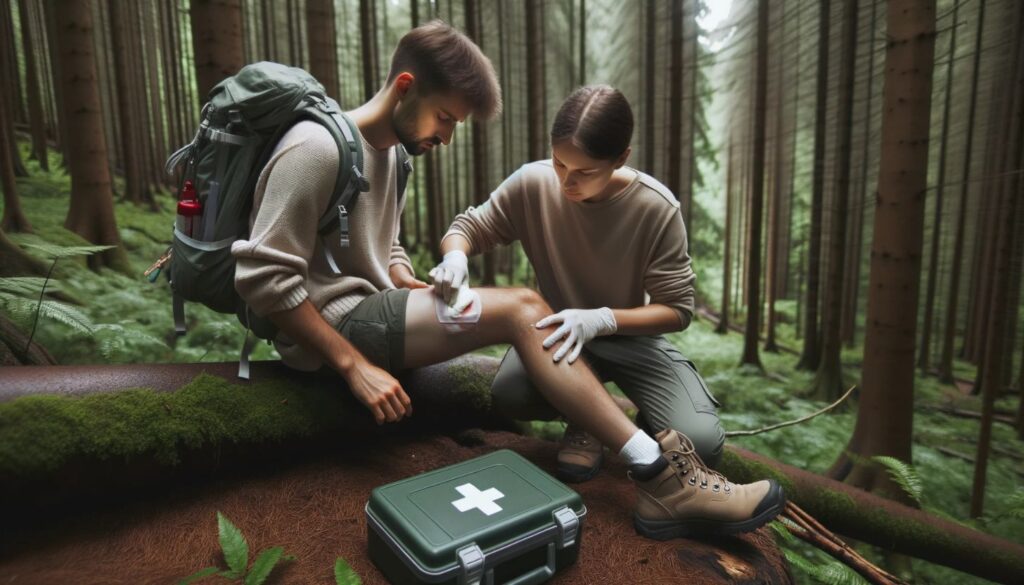
“Injuries can occur at any time, and proper recognition and treatment can mean the difference between life and death.”
Identifying and Managing Wilderness Illnesses
When it comes to wilderness survival, it’s not just injuries that you need to worry about. In fact, illnesses can be just as dangerous, especially if left untreated. That’s why it’s important to understand the risks associated with wilderness illnesses and learn how to identify and manage them.
Common Wilderness Illnesses
Some of the most common wilderness illnesses include diarrhea, dehydration, heatstroke, hypothermia, and altitude sickness. Each of these conditions presents unique challenges, and it’s important to be able to recognize their symptoms quickly.
| Illness | Symptoms | Treatment |
|---|---|---|
| Diarrhea | Stomach cramps, frequent loose stools, dehydration | Fluid replacement, electrolyte solutions, rest |
| Dehydration | Dry mouth, thirst, fatigue, dizziness, dark urine | Fluid replacement, electrolyte solutions |
| Heatstroke | High fever, rapid heartbeat, headache, nausea, confusion | Cooling measures, rest, fluid replacement |
| Hypothermia | Shivering, confusion, slurred speech, low body temperature | Warmth, dry clothing, shelter, hot drinks |
| Altitude Sickness | Headache, nausea, fatigue, dizziness, shortness of breath | Descend to lower altitude, rest, hydration |
Survival Medical Skills
Identifying and managing wilderness illnesses requires a combination of knowledge and practical skills. First, you need to be able to recognize the symptoms of common illnesses quickly. Additionally, you should know how to administer basic first aid and provide supportive care until help arrives.
It’s also a good idea to carry a wilderness medicine guidebook and any necessary medications with you while exploring the outdoors. This way, you can refresh your knowledge and take action immediately to prevent worsening of an illness.
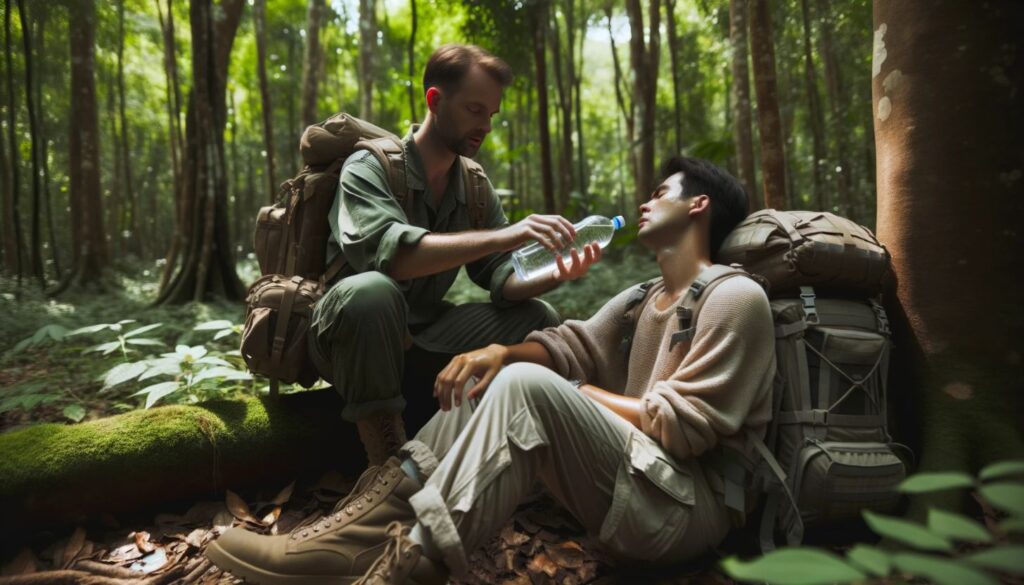
Self-Care and Maintenance in Survival Situations
When it comes to survival medical skills, taking care of yourself and others is essential. In survival situations, injuries and medical emergencies can occur at any time, making it crucial to prioritize self-care.
One of the most important things to remember is to stay hydrated. Make sure you have access to clean water and are drinking enough to prevent dehydration. It is also important to maintain proper sanitation to avoid infection and illness.
In treating injuries in survival situations, it’s important to have a well-stocked first aid kit. Make sure your kit includes essentials such as bandages, antiseptic wipes, and pain relief medication. Keep your kit in a waterproof container to prevent damage from moisture or exposure.
Additionally, familiarize yourself with basic first aid techniques such as how to clean and dress wounds, how to treat burns, and how to handle fractures and sprains. Consider taking a first aid course to enhance your survival medical skills even further.
Remember that self-care also includes taking care of your mental health. In survival situations, it’s easy to become overwhelmed and stressed, so it’s important to practice mindfulness and relaxation techniques. Take breaks when needed, seek support from others, and stay positive.
By prioritizing self-care and maintenance, you can enhance your survival medical skills and ensure that you are prepared to handle any emergency that may arise.
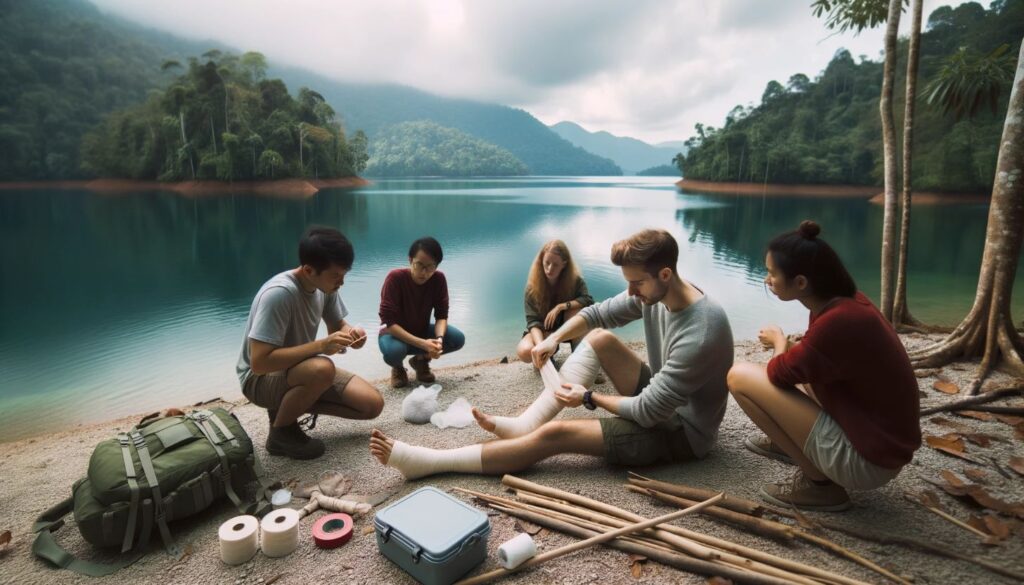
Long-Term Survival Medical Strategies
When it comes to survival medicine techniques, long-term strategies are essential for self-sufficiency in medical emergencies. As a survivor, you should know how to sustain your medical needs and manage emergencies over an extended period. The following are crucial long-term survival medical strategies:
- Prioritize your medical needs: Your medical needs should be a top priority. Ensure you have enough medical supplies and equipment to address emergencies, prevent infections, and manage illnesses.
- Build a first aid kit: Creating a well-stocked first aid kit is a crucial step in ensuring your survival medical skills. Your kit should include bandages, gauze pads, splints, sterile wipes, and other essential supplies.
- Know how to purify water: In survival situations, access to safe, clean water may be limited. Knowing how to purify water can help prevent dehydration and waterborne illnesses.
- Learn alternative medical treatments: In the absence of modern medical treatments, natural remedies and DIY medical treatments can be life-saving. Learn how to identify medicinal plants and understand their therapeutic uses.
- Practice good hygiene: In survival situations, poor hygiene can lead to infections and illnesses. Cleanliness is essential to avoid health problems, especially when medical care is not readily available.
- Stay informed: Stay up to date with current events and developments in the medical field. This knowledge can aid in identifying potential health threats and staying prepared for emergencies.
By following these long-term survival medical strategies, you can become self-sufficient in managing emergencies and prioritizing your health. Remember, survival medicine techniques are critical to your overall survival, so be prepared.
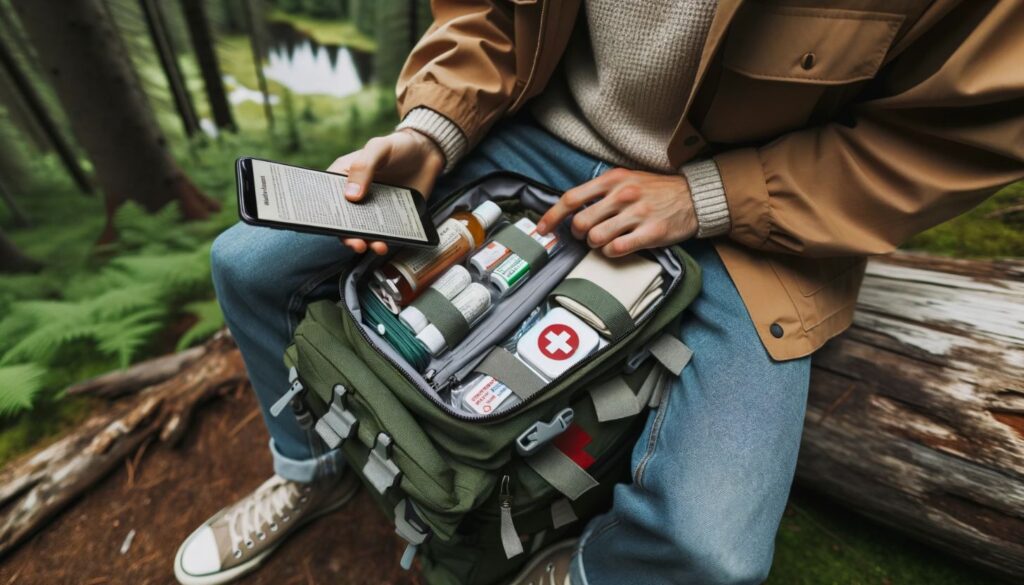
Mental Health and Psychological First Aid
During survival situations, mental health and psychological well-being are just as important as physical health. Emergency medical procedures and survival medicine techniques may not be enough to ensure holistic survival. Therefore, it’s crucial to understand the significance of psychological first aid and how to provide support to those in need.
Psychological first aid is a set of supportive actions aimed at helping individuals stabilize, reduce distress, and foster adaptive coping in the immediate aftermath of a traumatic event.
It’s essential to recognize signs of mental distress in survival situations. Symptoms of psychological distress include anxiety, fear, depression, anger, grief, guilt, and emotional numbness. If you or someone you know is displaying these symptoms, it’s essential to seek help immediately.
Survival medicine techniques cannot address psychological distress effectively. Therefore, it’s crucial to provide support and address psychological well-being during emergencies. To provide psychological first aid:
- Listen actively and calmly to the individual’s concerns.
- Be non-judgmental and offer comfort and reassurance.
- Encourage the individual to talk about their feelings and emotions.
- Help them identify their needs and connect them with resources when possible.
- Encourage self-care activities like relaxation, breathing exercises, and mindfulness techniques.
Remember, providing psychological first aid can make a significant difference in the survival and recovery of individuals in stressful situations.

Conclusion
Having the proper knowledge and skills to handle medical emergencies is imperative for survival situations. By learning essential techniques like wilderness first aid, natural remedies, and psychological support, you are now equipped to provide effective care when professional help is not available.
Maintain your health through self-care, stock your medical supplies, and be ready to apply survival medicine skills if the need arises. With this guide as your resource, you can respond calmly and confidently when medical emergencies occur, helping to preserve life.
The preparation you take today can make all the difference should you ever find yourself relying on survival medicine abilities.
FAQ
What is the purpose of this survival medicine guide?
The purpose of this survival medicine guide is to provide comprehensive information and protocols to help you handle medical emergencies effectively in survival situations.
What will I learn in the wilderness first aid section?
In the wilderness first aid section, you will learn essential techniques and skills to treat injuries in survival situations and provide emergency medical care in the wild.
How can I use natural remedies for survival?
This guide will teach you various DIY medical treatments using natural resources, empowering you to enhance self-sufficiency in medical emergencies.
What are the essential medical supplies I should have for survival?
You will learn about the crucial medical supplies necessary for survival situations and understand different survival medicine techniques to ensure you are prepared with the right tools.
How can I recognize and treat common injuries in survival situations?
This section will provide you with valuable insights into recognizing and treating common injuries, equipping you with potentially life-saving techniques for emergency medical care in the wild.
What are wilderness illnesses, and how can I manage them?
You will gain an understanding of the risks associated with wilderness illnesses and learn the necessary skills to identify and manage them effectively, enabling you to respond to medical emergencies in the wild.
How important is self-care and maintenance in survival situations?
Self-care and maintenance are crucial in survival situations. This guide will explore the importance of taking care of yourself and others when facing injuries and medical emergencies.
How can I sustain my medical needs in long-term survival situations?
In the section on long-term survival medical strategies, you will learn how to sustain your medical needs and become self-sufficient in managing emergencies over an extended period.
Why is mental health and psychological first aid important in survival situations?
Mental health and psychological first aid play a significant role in ensuring overall well-being during emergencies. This guide will help you understand how to provide support and address psychological needs in survival situations.
What will I gain from this ultimate survival medicine guide?
By following the information provided in this guide, you will enhance your emergency readiness, acquire essential knowledge and skills, and prioritize your safety in handling medical emergencies effectively.
